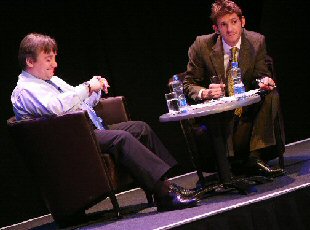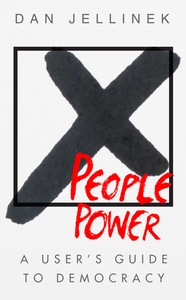- Home |
- Publishing |
- Events |
- Research |
- Register
» Home / Latest News / Research news / Web 2.0 - what are the implications for local authorities?
Web 2.0 - what are the implications for local authorities?
Research news published: Tuesday 23rd October 2007

This month, E-Government Bulletin Editor Dan Jellinek facilitated a debate on the implications for councils of 'Web 2.0', at the local government Society of IT Management (Socitm) annual conference.
This low figure was partially explained by the fact that a slightly larger number of hands went up - around 15%-20% of the audience - when the question was asked: 'Whose employing council restricts or blocks the use of Facebook in the workplace?
The straw polls illustrate the current concerns which exist in local government towards controlling employee use of social networking.
Leading the session at the Belfast conference David Wilde, head of information and customer services and chief information officer at the London Borough of Waltham Forest, asked: "Is Web 2.0 about empowerment of the people? In what way should we engage? Do people in local government have the right skills to use it?"
The use of 'Web 2.0' sites and techniques by councils breaks down into several categories, the session heard. These include formal and informal use by employees or councils of existing external social networking sites such as Facebook; use of third-party sites which use online interactive or peer-to-peer techniques to try to improve public services, such as the problem-reporting service 'FixMy Street', and the use of social networking or online community techniques within councils' own web services.
The main areas of concern in local government appear to be over employees wasting time in the use of non-work-related social networks or websites; and in related security and organisational image concerns.
"For managers it can be difficult to know - what exactly are their employees doing?" said Wilde. "But the organisation needs to be outcome-based, and I don't think we should not use technology to ban such activities. If there are staff performance issues, we should address them directly."
Sarah Coburn, the BBC television journalist and producer acting as the main conference chair, told the session the BBC itself has an issue with control of employee use of the new wave of social networking sites. "They are impossible to regulate, so you must have an element of trust. Some companies allocate a particular time of day for use of these sites, a compromise which works for them."
In the open debate session, Tim Dawes of Ninevah Consulting said that attracting young workers was a major challenge for council IT managers, and issues such as flexible working, employee trust and allowing people to use technologies such as instant messaging were key to recruiting younger people. "You can't lock it down too much: you need to address working practices instead," Dawes said.
"We should treat staff as adults, but also as children when it comes to creativity opportunities," Dawes said. "In certain areas now we have a blurring of distinctions, for example, between work and play. We need to allow creativity to happen and yet be productive."
Richard Steel, Chief Information Officer at Newham Council, said: "Work is changing and we need to be more flexible. The idea of control is ridiculous - devices are getting smaller and connected in different ways, and convergence of networks needs a different way of thinking."
Alan Kirkwood, Head of ICT Services at Moray Council, said councils have concerns over control and moderation of online networks where citizens might be encouraged to discuss public service issues. "People could use web 2.0 to have a go at the council."
David Wilde said councils could use web 2.0 techniques to improve services by empowering the user and generating efficiencies by creating platforms whereby people could help themselves and each other more easily. "There is a place for web 2.0 in areas where it can add value, such as in planning consultations. The public will do it anyway, so we need to ask how can we engage. It is not going away," Wilde said.
NOTE: For a full set of reports from Socitm 2007 on the society's own website, written by E-Government Bulletin editor Dan Jellinek, see:
http://fastlink.headstar.com/so3
And for brief video highlights of the conference including the Web 2.0 session on the Local Government Channel, see:
http://www.localgovernmentchannel.com/index.php?h=0e770b79d0113567813bb5efee68fc9d&id







